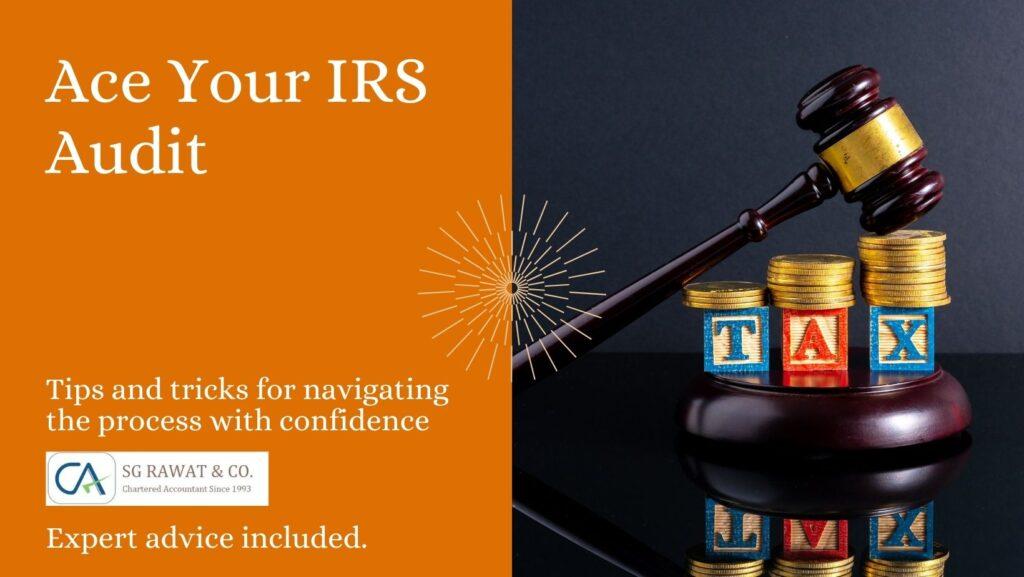Preparing for an IRS Audit: Navigating the Process with Confidence

Introduction
The prospect of facing an IRS audit can be daunting for both individuals and businesses. However, being well-prepared and understanding the dos and don’ts can significantly ease the process. In this comprehensive guide, we will delve into the intricacies of preparing for an IRS audit. By following the right steps and avoiding common pitfalls, you can navigate this potentially stressful situation with confidence and compliance.
Understanding IRS Audits: A Brief Overview
An IRS audit is an examination of an individual’s or organization’s financial information and accounts to ensure accuracy and compliance with tax laws. Audits can be random, triggered by specific red flags, or as a part of routine checks. It’s important to note that being audited doesn’t necessarily imply wrongdoing; the IRS conducts audits to maintain the integrity of the tax system.
Dos: How to Prepare Effectively
Understanding Your Rights:
- Consult a Tax Professional:
- Engage a qualified tax professional or a Chartered Accountant experienced in handling IRS audits. Their expertise can be invaluable in guiding you through the process, ensuring compliance with IRS regulations.
- Organize Your Documents:
- Gather and organize all relevant documents, including tax returns, receipts, invoices, bank statements, and any other records that support your reported income and deductions. A well-organized documentation system is key to a smooth audit process.
- Review Your Tax Return:
- Thoroughly review your tax return before the audit. Understanding what you filed will help you respond confidently to the auditor’s questions. If you used a tax professional, consult them to refresh your memory about the specifics of your return.
- Be Honest and Transparent:
- Maintain honesty and transparency throughout the audit process. Providing accurate information and cooperating with the IRS auditor demonstrates your willingness to comply with tax laws.
- Know Your Appeal Rights:
- Familiarize yourself with your appeal rights in case you disagree with the audit findings. Understanding the appeals process can provide you with options if you believe the IRS has made an error.
Don’ts: Common Mistakes to Avoid
Managing Communication:
- Avoid Going Alone:
- Do not face the IRS auditor alone, especially if you lack experience in tax matters. Having a tax professional or a Chartered Accountant by your side can prevent misunderstandings and ensure your rights are protected.
- Limit Unnecessary Information:
- While honesty is crucial, avoid volunteering excessive information that is not directly related to the audit. Stick to the specific questions asked and provide concise, accurate answers.
Documentation and Record-keeping: 3. Don’t Destroy Records:
- Do not destroy any records, even if you believe you are being audited for a year in the past. The IRS may require documentation from several years back to establish consistency and accuracy in your financial records.
- Avoid Insufficient Documentation:
- Do not rely on incomplete or vague records. Properly substantiated documentation is essential. Lack of supporting documents can raise suspicions and lead to further scrutiny.
Behavior and Attitude: 5. Avoid Confrontations:
- Remain calm and composed during the audit. Avoid confrontations or arguments with the IRS auditor, regardless of the situation. Professionalism and courtesy can go a long way in establishing a positive atmosphere.
- Don’t Procrastinate:
- Do not delay responses or ignore requests from the IRS. Timely cooperation is crucial. Delays may lead to escalated actions from the IRS, potentially resulting in legal consequences.
Conclusion: Navigating the Audit Process
In conclusion, preparing for an IRS audit requires a combination of diligence, honesty, and professional guidance. By understanding your rights, organizing your documentation, and cooperating transparently, you can face an IRS audit with confidence. Avoid common pitfalls, seek professional assistance, and approach the process with a proactive mindset. Remember, being well-prepared is the key to a successful audit experience. If you find yourself facing an IRS audit, don’t hesitate to reach out to a qualified tax professional or a Chartered Accountant who can provide expert guidance tailored to your specific situation. With the right approach, you can navigate the audit process efficiently and emerge with your financial integrity intact.

